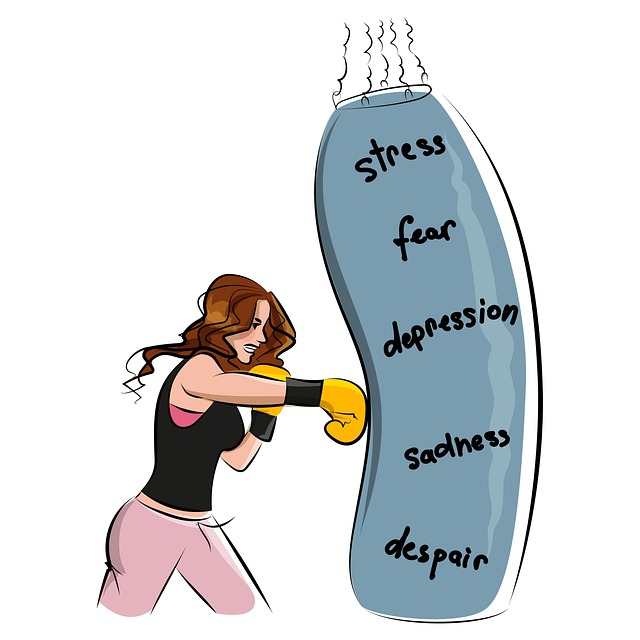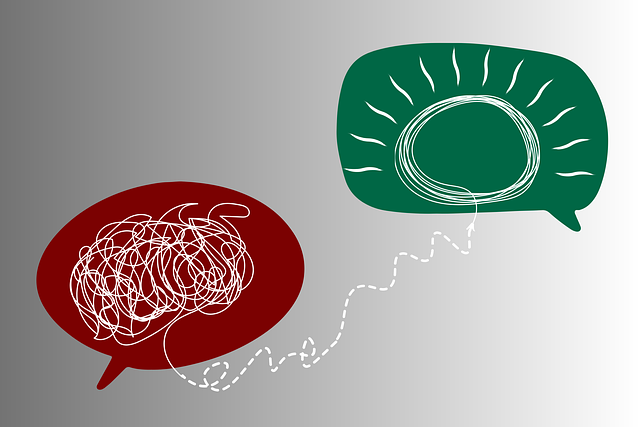Longmont Divorce Therapy offers comprehensive stress management strategies for a healthier mind in today's demanding world. Their 'Mind Over Matter' approach combines self-awareness exercises, cognitive behavioral techniques (CBT), and mindfulness practices to help individuals identify and combat stress triggers. By fostering resilience through personalized coping mechanisms, self-care routines, and compassion cultivation, Longmont Divorce Therapy equips clients with tools to navigate life's challenges, ensuring better mental well-being during and after divorce.
Stress management techniques are essential tools for maintaining mental health, especially in today’s fast-paced world. This comprehensive guide explores various approaches to navigate and overcome stress, offering valuable insights for those seeking a peaceful mind. From understanding the root causes of stress to implementing cognitive behavioral techniques and mindfulness practices, we delve into strategies that can transform your daily routine. Additionally, discover lifestyle adjustments that may be the key to breaking free from chronic stress, providing a path to tranquility and improved well-being, relevant even in challenging situations like Longmont Divorce Therapy settings.
- Understanding Stress and Its Impact on Mental Health
- Identifying Triggers: Recognizing Stressors in Daily Life
- Cognitive Behavioral Techniques for Stress Management
- Mindfulness and Meditation Practices for Calmness
- Lifestyle Adjustments to Reduce Chronic Stress
Understanding Stress and Its Impact on Mental Health

Stress is a natural response to challenging situations, but when it becomes chronic, it can significantly impact mental health. Understanding the root causes and effects of stress is essential in managing it effectively. In today’s fast-paced world, many individuals face high-pressure environments at work or home, leading to increased anxiety and depression. Longmont Divorce Therapy emphasizes the importance of recognizing these triggers and developing healthy coping mechanisms.
The concept of ‘Mind Over Matter’ principles plays a pivotal role in stress management. By fostering self-awareness through exercises designed to enhance mental wellness coaching programs, individuals can learn to control their reactions. Self-Awareness Exercises help people identify stress triggers, allowing them to develop personalized strategies for navigating demanding situations. This proactive approach ensures that mental health remains a priority, even during stressful periods, ultimately promoting resilience and overall well-being.
Identifying Triggers: Recognizing Stressors in Daily Life

Many people experience stress as a constant companion in their daily lives, often without even recognizing the triggers that set it off. Understanding these stressors is the first step towards effective stress management. At Longmont Divorce Therapy, we frequently encounter individuals grappling with various sources of stress, from work pressures and financial worries to relationship issues and life transitions. Identifying these triggers requires introspection and self-awareness.
Keep a journal, pay attention to recurring emotions or situations, and be honest about what brings on feelings of tension, anxiety, or overwhelm. Common stressors might include demanding jobs, caregiving responsibilities, financial strain, or interpersonal conflicts. By taking the time to identify these triggers, individuals can begin to develop tailored stress management strategies through mindfulness meditation, participate in Stress Management Workshops Organization, or explore other therapeutic approaches available at Longmont Divorce Therapy.
Cognitive Behavioral Techniques for Stress Management

Cognitive Behavioral Techniques (CBT) offer a powerful set of tools for managing stress in individuals dealing with challenging life situations, including those undergoing Longmont Divorce Therapy. CBT focuses on identifying and changing negative thought patterns and behaviors that contribute to excessive stress. By learning to challenge and replace self-defeating thoughts with more realistic and balanced perspectives, individuals can significantly reduce their stress levels. This approach empowers people to take control of their emotions and reactions, fostering a sense of resilience in the face of adversity.
Incorporating Self-Care Routine Development for Better Mental Health is integral to CBT practices. Encouraging clients to engage in regular self-care activities, such as exercise, meditation, or spending time in nature, complements therapy sessions. Public Awareness Campaigns Development and Mental Health Policy Analysis and Advocacy play a crucial role in promoting these stress management techniques on a broader scale, ensuring that individuals have access to evidence-based strategies for maintaining well-being, even during trying times.
Mindfulness and Meditation Practices for Calmness

Mindfulness and meditation practices have emerged as powerful tools to combat stress in today’s fast-paced world. Longmont Divorce Therapy emphasizes the importance of these techniques in fostering calmness and emotional well-being, especially for individuals navigating challenging life transitions. By incorporating mindfulness into daily routines, one can learn to stay present and reduce the impact of stressful thoughts. Meditation serves as a gateway to inner peace, allowing individuals to cultivate a sense of tranquility and resilience against life’s pressures.
Regular practice of these ancient techniques has been linked to improved mental health and even depression prevention. Self-care routine development revolves around such practices, where setting aside time for meditation or mindful activities becomes a crucial aspect of maintaining emotional balance. Furthermore, compassion cultivation practices, encouraged by Longmont Divorce Therapy, help individuals extend kindness towards themselves and others, creating a supportive environment that nurtures overall well-being.
Lifestyle Adjustments to Reduce Chronic Stress

Chronic stress can significantly impact our daily lives and overall well-being, often requiring a multifaceted approach to manage effectively. One powerful strategy involves making lifestyle adjustments that foster resilience and promote a sense of calm. This may include adopting healthy habits such as regular exercise, mindfulness practices, and improved sleep hygiene. Engaging in Self-Awareness Exercises can help individuals recognize stress triggers and develop personalized coping mechanisms.
In the context of Longmont Divorce Therapy, clients often benefit from incorporating Compassion Cultivation Practices into their routines. Cultivating self-compassion and empathy towards oneself can alleviate stress and facilitate emotional healing. Additionally, applying Mind Over Matter Principles allows individuals to reframe challenging situations and gain a sense of control, ultimately reducing the impact of chronic stress on both mental and physical health.
Stress management is a valuable skill, especially in navigating today’s challenges. By understanding stress, identifying triggers, and adopting various techniques like cognitive behavioral therapy, mindfulness, and lifestyle adjustments, individuals can significantly improve their mental well-being. Longmont Divorce Therapy highlights the importance of these strategies, offering a holistic approach to coping with life’s stresses. Remember that managing stress is an ongoing process, and with consistent practice, one can foster resilience and enhance overall happiness.












